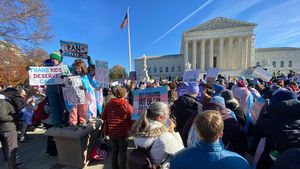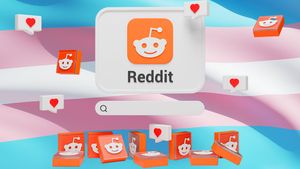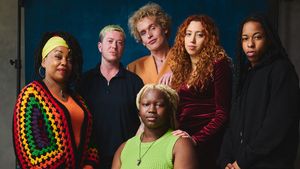Treatment GuideJust DiagnosedSex & DatingAfrican AmericanStigmaAsk the HIV DocPrEP En EspañolNewsVoicesPrint IssueVideoOut 100
CONTACTCAREER OPPORTUNITIESADVERTISE WITH USPRIVACY POLICYPRIVACY PREFERENCESTERMS OF USELEGAL NOTICE
© 2025 Pride Publishing Inc.
All Rights reserved
All Rights reserved
Scroll To Top
By continuing to use our site, you agree to our Privacy Policy and Terms of Use.
A close friend of mine is HIV-negative. Or at least until recently he thought he was. After developing symptoms suspiciously resembling syphilis, he went to a local clinic, where they decided to do an HIV test. A rapid test. He thought it was a good idea. After waiting 15 minutes, his counselor entered the room and said, 'Congratulations, you're HIV-negative.' My friend (we'll call him Shawn) thought 15 minutes was terribly quick but let it go. The counselor (we'll call him Greg) left the room to get the nurse to draw blood for the syphilis test, leaving Shawn alone in the room with the test. Minutes passed, and since there was nothing else to do, Shawn shifted his attention to the test itself. He picked it up, glanced at it, and to his astonishment noticed that, where there was no line just moments before, a faint one was beginning to appear. His heart quickened and he began to worry. When Greg returned, Shawn showed him the test, and Greg's face developed a grave expression. The nurse also looked at the result and couldn't hide her similar concern. They apologized, said the results were inconclusive, and ordered a blood test. That was Thursday. Results might be in Tuesday, nearly a week later and punctuated by a long weekend. We have all been in similar positions, yes? Getting a test result, worrying about it being positive. And perhaps even some of us have received inconclusive results requiring follow-up. But I wonder how many of us have been left alone in an exam room, watching the result unfold before our very eyes. Anxiety. Fear of the unknown. Shawn's world changed during those moments, a seismic shift knowing that quite possibly his world would never be the same. In times past Shawn dealt with stress--any type of stress--in a fairly consistent fashion: with substances. Regardless of the stressor or perceived difficult emotion--boredom, disappointment, restlessness, fatigue, excitement--Shawn would use substances either to escape from a negative emotion or enhance a positive one. But after a series of consequences and humiliations, he is trying something different. He realized that to continue would be disaster. Continuing on the same path was destruction. So back to Thursday, weekend approaching. Before he would have partied over a plethora of relatively benign issues; now he was now trying to avoid substances altogether while feeling enormous fear and discomfort. How could he accomplish this? Well, I spoke with him several times over the weekend, and he fared as well as anyone could. Over the past months he has made a number of new friends in trying to remain clean, and he chose to spend a good deal of time with them over the weekend. It was no cakewalk. Navigating treacherous terrain, dogged with doubt, he felt vulnerable and confused. However, he spoke frequently and honestly about his fears and sadness. He spoke about how he wanted to use drugs. He avoided isolation. He managed to laugh a bit. He avoided self-medication. He avoided self-destruction. Psychological literature consistently mentions the importance of having a support network. Throughout my life, I dismissed this notion--perhaps more out of fear--sensing that there were few who I could trust or who would understand. Little did I know and little did Shawn know that the supposed stance of invulnerability is precisely what leads to being vulnerable and that being vulnerable is precisely what leads to strength. Fransen is a licensed clinical social worker who is in private practice in Chicago. E-mail him at stillpoint4003@yahoo.com.
Recommended Stories for You
From our Sponsors
Most Popular
Lexi Love comes out as HIV+ after Trump deletes federal resources
January 23 2025 11:23 AM
Grindr is reminding us why jockstraps are so sexy and iconic
May 02 2025 5:36 PM
BREAKING NEWS: Trump admin moves to end federal HIV prevention programs
March 18 2025 6:10 PM
Trump's orders prompt CDC to erase HIV resources
January 31 2025 5:29 PM
Celebrating Black History Month with our annual African American issue
February 01 2025 3:28 PM
Tyler TerMeer vows to continue to fight for health care for all
January 28 2025 3:00 PM
Discover the power of Wellness in your life
March 26 2025 12:41 PM
Plus: Featured Video
More Videos
0 seconds of 3 minutes, 18 secondsVolume 0%
Press shift question mark to access a list of keyboard shortcuts
Keyboard Shortcuts
Shortcuts Open/Close/ or ?
Play/PauseSPACE
Increase Volume↑
Decrease Volume↓
Seek Forward→
Seek Backward←
Captions On/Offc
Fullscreen/Exit Fullscreenf
Mute/Unmutem
Decrease Caption Size-
Increase Caption Size+ or =
Seek %0-9
Copied
Live
00:00
03:18
03:18
Latest Stories
Dancer. Healer. Survivor. DéShaun Armbrister is all of the above
July 02 2025 8:23 PM
Two right-wing Supreme Court justices signal they may uphold access to PrEP and more
April 21 2025 4:10 PM
Broadway's best raise over $1 million for LGBTQ+ and HIV causes
April 03 2025 7:15 PM
Plus nominated for 2025 GLAAD Media Award
January 22 2025 12:42 PM
'RuPaul's Drag Race' star Trinity K Bonet quietly comes out trans
December 15 2024 6:27 PM
AIDS Memorial Quilt displayed at White House for the first time
December 02 2024 1:21 PM
BREAKING: Supreme Court rules to save free access to preventive care, including PrEP
June 27 2025 10:32 AM
1985: the year the AIDS crisis finally broke through the silence
June 26 2025 11:24 AM
Trump admin guts $258 million in funding for HIV vaccine research
June 03 2025 3:47 PM
500,000 Children at Risk: PEPFAR Funding Crisis
April 08 2025 3:51 PM
The Talk Season 5 premieres this spring with HIV guidance for the newly diagnosed
March 26 2025 1:00 PM
Jess King is here to help you live your happiest, healthiest life yet
March 24 2025 4:35 PM
A camp for HIV-positive kids is for sale. Here's why its founder is celebrating
January 02 2025 12:21 PM
VIDEO: A man living with HIV discusses his journey to fatherhood
June 10 2025 4:58 PM
HRC holds 'die-in' to protest Trump health care cuts
April 28 2025 2:11 PM
Season 4 of The Switch on resilience & radical self-love returns this spring
March 26 2025 12:20 PM
Gerald Garth is keeping people of color happy and healthy through trying times
March 11 2025 3:38 PM
This long-term HIV survivor says testosterone therapy helped save his life.
December 16 2024 8:00 PM
Ricky Martin delivers showstopping performance for 2024 World AIDS Day
December 05 2024 12:08 PM



















































































